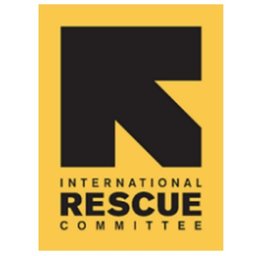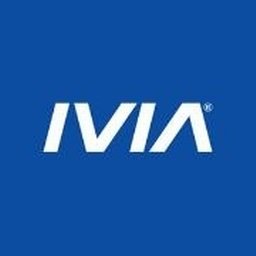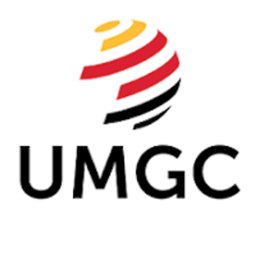Job Opportunities in Poland

September 10, 2024
International Rescue Committee
Gdynia
OTHER
Polish Language Teacher
The International Rescue Committee (IRC) responds to the world’s worst humanitarian crises, helping to restore health, safety, education, economic wellbeing, and power to people devastated by conflict and disaster. Founded in 1933 at the call of Albert Einstein, the IRC is one of the world's largest international humanitarian non-governmental organizations (INGO), at work in more than 50 countries and more than 25 U.S. cities helping people to survive, reclaim control of their future and strengthen their communities. A force for humanity, IRC employees deliver lasting impact by restoring safety, dignity and hope to millions. If you're a solutions-driven, passionate change-maker, come join us in positively impacting the lives of millions of people world-wide for a better future.
IRC Poland: On 8 February 2022 three IRC staff arrived in Poland to initiate scoping of local and national actors in Warsaw, Lublin, and Rzeszow as well as across the Western, Central, and Eastern regions in Ukraine. When on 24 February Russian troops entered eastern Ukraine with the aim of toppling the government led by President Volodymyr Zelenskyy and conflict-affected individuals started fleeing to neighboring countries, the IRC established a presence in Poland to build partnerships with local state, civil society, and private sector actors to respond to needs of arriving refugees. As of April 26, over 5.3 million people have fled Ukraine seeking safety with nearly 50% (2.9 million) of those displaced fleeing to Poland. Reports indicate almost all arrivals in Poland are women and children, including those that are unaccompanied and separated, as well as older persons. IRC Poland’s goal is to ensure the survival of emergency-affected people in a way that enables their safety, dignity, and empowerment. Working in the program areas of economic recovery and development and safety, the IRC will accomplish this by working to see that 1) People affected by the war in Ukraine are able to meet their immediate and basic needs with safety and dignity and avoid harmful coping mechanisms and 2) People affected by the war in Ukraine are protected and supported to recover from the consequences of violence and displacement through equitable access to services and information.
JOB OVERVIEW:
KEY RESPONSIBILITIES:
Responsibilities include, but are not limited to:
Teaching responsibilities:
- Designing educational curricula catering for the needs of clients (students) both adults and children, of different age, level of fluency, and -potentially- linguistic groups.
- Planning and conducting Polish language lessons on a daily basis.
- Suggesting and developing other support services that serve the programme’s goals, as well as general clients’ needs, such as information sessions on other educational activities.
- Evaluating objectively and regularly the clients’ performance and learning progress and making suggestions as to possible change of approach if needed.
- Proactively working to identify issues related to clients’ attendance and participation and reporting those issues to the Integrated Protection Manager when necessary.
- Mainstreaming Protection principles among clients during and around teaching time and referring clients in need to Protection services when relevant and agreed upon, with due consideration for matters of safety, confidentiality, respect and non-discrimination, under the guidance of Protection teams.
- Ensuring relevant project data (academic records, lessons’ plans, etc.), are accurately safely collected, updated, and stored on a regular basis.
Program coordination responsibilities:
- Working with the Integrated Protection Manager, the Education Manager, or the Women’s Protection and Empowerment and Child Protection teams in order to develop training curricula that are up-to-date, meet training objectives and are being effectively and uniformly implemented.
- Compiling information in relevant services in the form of a service mapping.
- Supporting information dissemination on education and vocational training provided by the IRC or other institutions.
- Participating in regular team coordination meetings.
- Participating in case conferences when relevant.
- Any other task designated by the Integrated Protection Manager.
REQUIREMENTS:
- Bachelor’s degree in Pedagogy, Education, Polish Philology, or a related field. Glottodidactic specialisation is a distinctive advantage.
- Demonstrated experience teaching Polish as a foreign language. Experience teaching refugee and migrant populations is a distinctive advantage.
- Experience delivering classes in non-traditional contexts and familiarity with new educational methods and technologies (e-learning platforms) is desirable, in adequacy with the preferences and opportunities of different student/client groups.
- Experience in curriculum development and implementation.
- Proven ability to work with consideration and respect for cross-cultural differences and with disadvantaged or more vulnerable groups. Demonstrated sensibility to inclusive approach in teaching.
- Excellent communication skills, with fluency in written and spoken Polish and English. Knowledge of Ukrainian or Russian is an asset.
- Very strong organizational and interpersonal skills.
- Enthusiasm for helping people to learn and demonstrated professionalism.
Working hours: 15:00-19:00, Monday to Friday (tentatively).
Travel and other requirements: Occasionally to other areas of IRC programs within Gdynia.
IRC is an Equal Opportunity Employer IRC considers all applicants on the basis of merit without regard to race, sex, color, national origin, religion, sexual orientation, age, marital status, veteran status or disability.
Disclaimer Clause: This job description is not an exhaustive list of the skills, effort, duties and responsibilities associated with this position.
Due to the expected high number of applications, only shortlisted candidates will be contacted.
PROFESSIONAL STANDARDS
Standard Responsibilities
All IRC employees have a responsibility to Promote and actively participate in initiatives and efforts to build team engagement, inclusion and cohesion in IRC Poland and to Foster ongoing learning, honest dialogue and reflection to strengthen safeguarding and to promote IRC values and adherence to IRC policies
Standard of Professional Conduct:The IRC and the IRC workers must adhere to the values and principles outlined in the IRC Way – our Code of Conduct. These are Integrity, Service, Accountability, and Equality.
Commitment to Gender, Equality, Diversity, and Inclusion: The IRC is committed to creating a diverse, inclusive, respectful, and safe work environment where all persons are treated fairly, with dignity and respect. The IRC expressly prohibits and will not tolerate discrimination, harassment, retaliation, or bullying of the IRC persons in any work setting. We aim to increase the representation of women, people that are from country and communities we serve, and people who identify as races and ethnicities that are under-represented in global power structures.
We regret to inform you that this job opportunity is no longer available
Latest Job Opportunities

October 18, 2024
IPRACUJZDALNIE.PL
Kasjer Sprzedawca Tarnowskie Góry
Tarnowskie Góry
OTHER
View DetailsOctober 18, 2024
Sieć Badawcza Łukasiewicz - Instytut Przemysłu Organicznego
Specjalista Techniczny
Zabrze
OTHER
View DetailsOctober 18, 2024
Bioeko Grupa TAURON sp. z o.o.
Operator Urządzeń Produkcyjnych
Jaworzno
OTHER
View DetailsSimilar Jobs

September 13, 2024
University of Maryland Global Campus
Polish Language, Zagan The Undergraduate School - Adjunct Faculty
Żagań
OTHER
View Details

September 18, 2024
limango GmbH
Trainee Shop Management - English&Polish speaking
Wrocław
View Details
September 19, 2024
KORNFERRY
Consumer Healthcare / FMCG Senior Recruiter with Fluent Polish and English
Warszawa
View Details
September 19, 2024
Triumph International
Customer Success Specialist, Customer Interaction - Swedish and Polish speaker
Warszawa
View Details